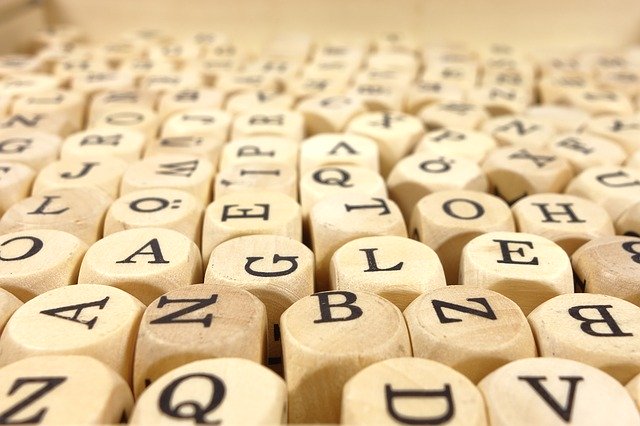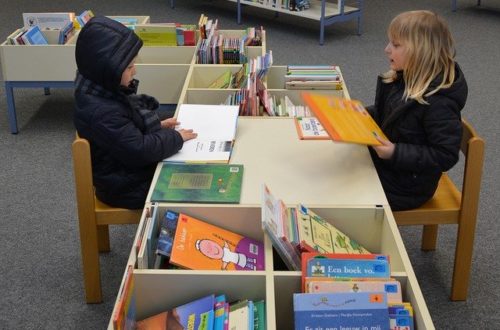For as long as I can remember, people have mangled my last name: “Metzler”, “Metzer,” “Metzger,” “Meltzler”… I’ve gotten them all. And if they don’t want to mispronounce it, they usually ask me to say it for them—an understandable request, but also one that always struck me as a little odd because “Meltzer” (MELT-zer) is perfectly phonetic. The question of stressed syllables aside, there is only one way it could be pronounced.
Curiously, I never thought about the connection between this phenomenon and phonics until very recently (yesterday, to be exact), but now that the thought has wormed its way into my brain, I’m convinced there’s something there.
Not long ago, I was browsing the internet and stumbled on an article about, of all random things, the plethora of North American cities with names of French origin, and the ways in which the pronunciation of such names has been distorted in English. In French, for example, Des Moines is pronounced roughly Day Mwan, the second word rhyming with “ran”; obviously, this bears little relationship to the Americanized Duh Moyne.
That got me thinking about the sheer number of American places—and names—with foreign origins, and about how far their pronunciation has drifted from the original. In fact, such words are often pronounced in ways that are not at all obvious from how they are written: an old colleague of mine, for example, had the last name Quartaro but pronounced it Quarteero—the Italian “ah” having been replaced by the nasal Upstate New York version of that vowel.
Or, to take a more infamous example, Terri Schiavo, the patient at the center of the 2005 bioethics controversy pronounced her last name Shy-vo, whereas the original Italian pronunciation would have been Skee-ah-vo.
There are of course clear reasons for this phenomenon: historically, (European) immigrants to the United States were generally eager to assimilate and often simplified the spellings, or developed alternate pronunciations, of names that Americans would have found too daunting. Moreover, some English geographical names are not even remotely phonetic, e.g., Worcester (Wooster) and Leicester (Lester), further adding to the linguistic muddle.
The result was a situation in which there was often no direct correspondence between how certain words—or, to be more accurate, parts of certain words—were written and how they were pronounced. It was thus inevitable that people would come to believe that English writing was not governed by any particular set of rules; rather, one simply looked at a word and chose to pronounce it particular way, and that was that. (This is in part why it is so important for Anglophone children to be taught in school that words that are not names or places are written according to a much more regular system of rules.)
Given that, it’s not surprising that people would hesitate and stumble over my name. Even if it can be read phonetically, there’s no guarantee that it wasn’t randomly assigned some entirely different pronunciation a hundred years ago. They don’t want to make assumptions about how it’s said and inadvertently be rude, or wrong, and embarrass themselves. I totally get that.
And yet, I don’t find this explanation 100% convincing.
To be sure, I think that assumptions about historical pronunciation “drift” are part of the story, but I think there’s another part about phonics, and about how a lot of today’s adults learned to read.
First, the degree of concern about pronunciation of my last name strikes me as disproportionate to the actual difficulty of the word. “Meltzer” may not be “Smith” or “Brown,” but it’s not exactly “Wojciechowski” either. Yet people seem consistently and sincerely nonplussed by it; I often get the impression that when certain individuals “double check” the pronunciation, it’s more of a cover for the fact that they aren’t really sure how to sound it out. It’s subtle, but I’ve spent enough to time around people with reading problems to know the signs. They say it hesitantly, not like the ones who pronounce it easily and are genuinely just making sure.
Second, when I think now about the specific ways in which my last name typically gets mispronounced, I’m very much struck by the neat categories into which those errors fall: reversing letters (Metzler); deleting letters (Metzer); adding letters (Meltzler); and replacing letters (Metzger). Those are all errors I saw my students make repeatedly, and I now recognize them as quintessential mistakes made by people who never really mastered reading phonetically.
More significantly, every single error involves the three consonants in the middle of the word—no one ever screws up the Me- or the -er. That is perfectly consistent with three-cueing pedagogy, one of whose hallmarks is a focus on first and last letters. Essentially, people look at the beginning and the end of my name, see some stuff in the middle that looks kind of weird (three whole consonants in a row!), and either guess or plug in. This is fundamentally different from encountering a transliterated Chinese name like, say, “Xiao” and having no idea what sound the first letter makes.
This is not just idle speculation on my part either: I’ve spent years observing the looks of confusion and then panic flit across people’s faces when they see those three consecutive consonants (ltz), in the split second before they plug in something they’ve heard before and that seem like it might kind of be in the ballpark. It does not occur to them to try to sound out the letters in front of them; or to chunk them into smaller bits; or to make relationships between them and other, very similar words.
They do not, for example, seem to realize that the word they’re looking at is written exactly the same as “seltzer,” save for the first letter—and that is a word they surely would recognize (perhaps because on it’s usually printed on a bottle filled with bubbly liquid?). Or that the same combination of consonants appears in “waltz.”
Nor do they seem to be aware t and l are never spontaneously swapped in English: melt is always “melt,” not “metl.” Reversing those letters goes against one of the most fundamental patterns of the language.
There’s a stunning kind of linguistic obliviousness there.
Again, people could just assume that because they’re dealing with a name, the usual rules don’t apply; but my gut sense is that it’s more a question of freaking out a little because there’s a relatively unfamiliar combination of letters and no context clues. That’s the behavior of people who aren’t accustomed to—or aren’t sure how to go about—sounding things out. At a deep (subconscious) conceptual level, the notion that words say what they say because they’re written the way they’re written is, well, much shakier than it should be. These are highly educated adults, but based on my experience, I do have to wonder what sorts of other things they might be misreading.
I mentioned my theory to a colleague, and she asked me whether the guessing might not just be a matter of laziness, that people can’t be bothered to look closely at the consonants in my name; and though I think that might factor in, I also think that that kind of attempt at a shortcut would only be made by someone whose phonetic skills were lacking in the first place.
If I may generalize based on my own experience, people who have a really solid foundation in phonics do not need to guess because sounding out words requires virtually no effort. If they see an unfamiliar string of letters, their instinctive reaction is to break it into chunks and sound each one out. Sound-syllable correspondences have effectively been hardwired into their brains, and so guessing literally isn’t part of their mental framework. They also know that sounding things out is basically guaranteed to get you the right pronunciation, whereas guessing isn’t. (For the record, that isn’t to say that I never mess things up—there are some words I’ve only seen encountered in written form, and sometimes I put the accent on the wrong syllable. When I was in Latin America recently, I embarrassed myself at a restaurant by asking for CASS-a-va instead of cass-AV-a.)
If this type of phonetic thinking isn’t inculcated in childhood, however, then not only do people fail to acquire the tools necessary to figure out unfamiliar words easily, but they also do not develop the mindset that unfamiliar words can be figured out; guessing or plugging in becomes the default. I’ve written about this many times.
What I haven’t thought about so much, however, is the skepticism toward a phonetic approach that adults taught via whole-language/three-cueing/whatever you want to call it might ultimately develop. It is not difficult to imagine a particular kind of defensiveness such individuals might exhibit: I never learned all this phonics stuff, and I’m smart, and I did just fine, so why should my kids have to do it? At this point, I really just want them to love learning.
In her recent article on the three-cueing system, Emily Hanford interview a woman in Michigan who was horrified to discover her niece was actually being taught the same compensatory strategies for reading that she had relied on as a student, and who realized there was something terribly wrong with that picture.
But realistically, how many people, unprompted, have that kind of reflective capacity about their own learning? How many adults developed coping strategies for poor reading without realizing they were coping strategies, and now take it for granted that that’s just what reading is like? And what happens when those people get put in charge? The entire system might be a case study for the Dunning-Kruger effect.
One common criticism leveled at phonics programs is that they do not encourage “authentic” reading because they incorporate nonsense or fake words. Aside from the fact that real words are made up of syllables that are often themselves “nonsense words,” names are the ultimate real-world example of words that must be decoded without context clues. It is therefore entirely unsurprising that my students generally had more difficulty with names than with any other kind of word, often to the point of not being sure whether an unfamiliar word was a name.
People who cannot do the type of “pure” decoding required to read names have no choice but to plug in or guess or “double-check,” even after which they still mess things up (pronunciation ability being linked to decoding ability), inevitably leading to embarrassment and awkwardness. Perhaps reading teachers could invent a game called, “Let’s pretend we’re podcast hosts and practice introducing our guests.” I mean, talk about an authentic activity!
In all seriousness, though, I think the fact that so many of today’s adults were themselves not taught to read phonetically explains some of the media and parental pushback against phonics. American reading pedagogy has been screwed up for a very, very long time; even those “traditional” Dick and Jane books from the ‘50s were repetitive readers, not phonetic ones. And three-cueing has had a pretty solid toehold since the ’70s, never mind the reading wars of the ’80s. It’s probably safe to assume that many of today’s adults don’t grasp the benefits of a really solid grounding in phonics because they don’t have one themselves; and for obvious reasons, it can be difficult to recognize the importance of knowledge one does not have.
Another, very likely, possibility is that adults who did learn to read phonetically have no recollection of having been taught this way and, taking their reading ability as “natural,” assume that their kids will just kind of pick it up. (This is one of the biggest problems about discussing education with adults who have been away from school for a long time—they often take their knowledge for granted, not realizing how much of it they actually acquired in the classroom and how much exertion was required to obtain it, and are easily persuaded that they would have ended up in the exact same place without formal education. That type of amnesia is a nightmare to combat, especially when such people are highly successful, and it’s worst when they’re involved in the tech world.)
Furthermore, people who know little about phonics, and who haven’t seen kids taught via whole-language struggle years down the line—which is to say almost everyone—are easily taken in by narratives about phonics and drill ‘n kill, worksheets, destroying love of learning, etc. They want their kids to enjoy school, and they have no idea that what seems good in the short term might be disastrous in the long run.
The more I think about it, the more I wonder just how well the people responsible for teaching reading actually read themselves. A few months back, Richard McManus over at the Fluency Factory took an informal poll to see if anyone knew of an elementary-education program that required training in phonics—he found exactly one, at the University of Rhode. But now I question whether the problem goes even beyond teachers not knowing how to teach phonics and extends into their own ability to sound out words.
Not to put too much stock in standardized tests here, but it’s well established that education students have some of the lowest SAT/ACT scores among all majors—and from what I’ve seen, low verbal scores do often signal real reading problems. Almost every kid I tutored who couldn’t score above the mid-500s on the old SAT or 24 on the ACT misread words, skipped lines, inserted and omitted letters, etc. At the bare minimum, people responsible for teaching children to read should be stellar decoders themselves. It would be fascinating to give my last name to some reading coaches as a kind of litmus test, and see whether they could sound it out. Anyone want to take a guess about the results?






One Comment
Andrew Chu
Congratulations on the new project! My hands are pretty full with SAT classs endeavors , but if there’s anything we in “HS” can do to support the CRITICAL importance of teaching phonics, please advise.
Andrew